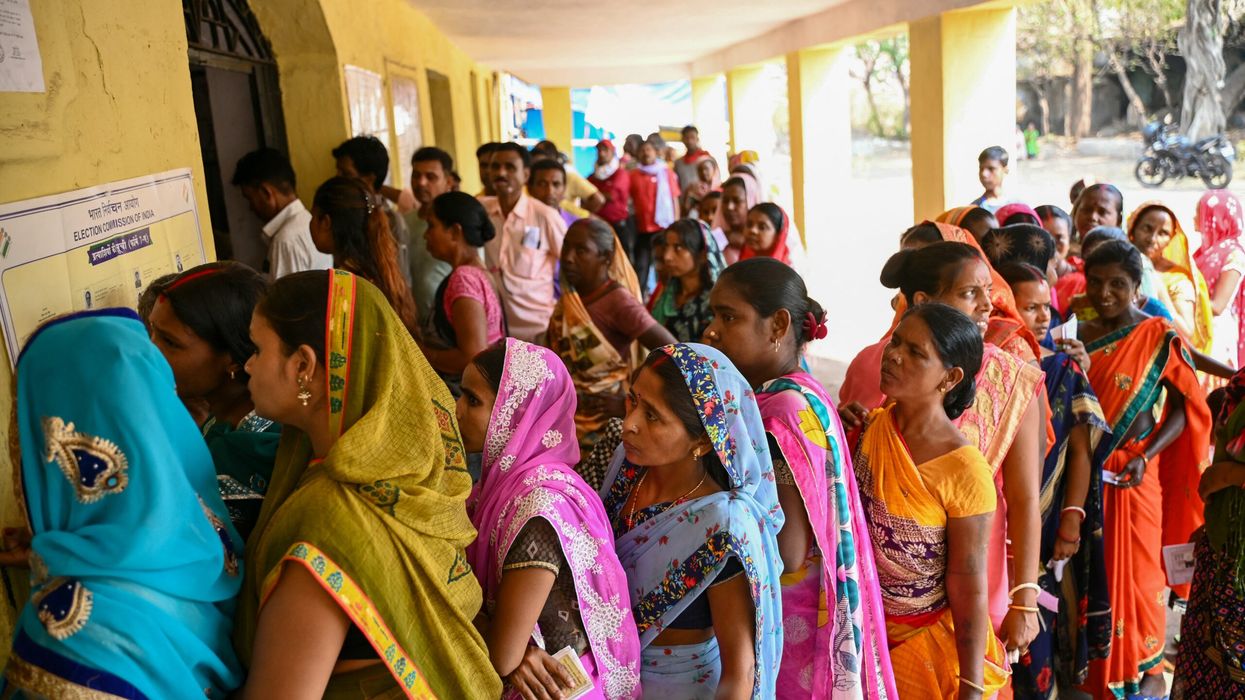Six phases of the marathon India elections are over, and on June 1, the 43-day-long electoral exercise with close to a billion voters will come to an end.
With every phase, the controversies, confrontations, and the contest have intensified.
The elections started with Narendra Modi as the clear favourite to secure a third term as the prime minister.
But the opposition’s INDIA (Indian National Developmental Inclusive Alliance) bloc seems to be giving the ruling Bharatiya Janata Party (BJP) a good fight, or at least it seems so. However, it will be clear only on June 4, when the counting of votes takes place.
Here’s a look at the key election developments this week:
Phase 6 Turnout at Over 63.36 Per Cent as Delhi Votes Amid Scorching Heat
The penultimate phase of the ongoing Lok Sabha election recorded a voter turnout of 63.36 per cent, a day after polling was conducted.
Despite sweltering conditions in New Delhi and other parts of the country, voters turned out in force to participate in this pivotal stage of the election.
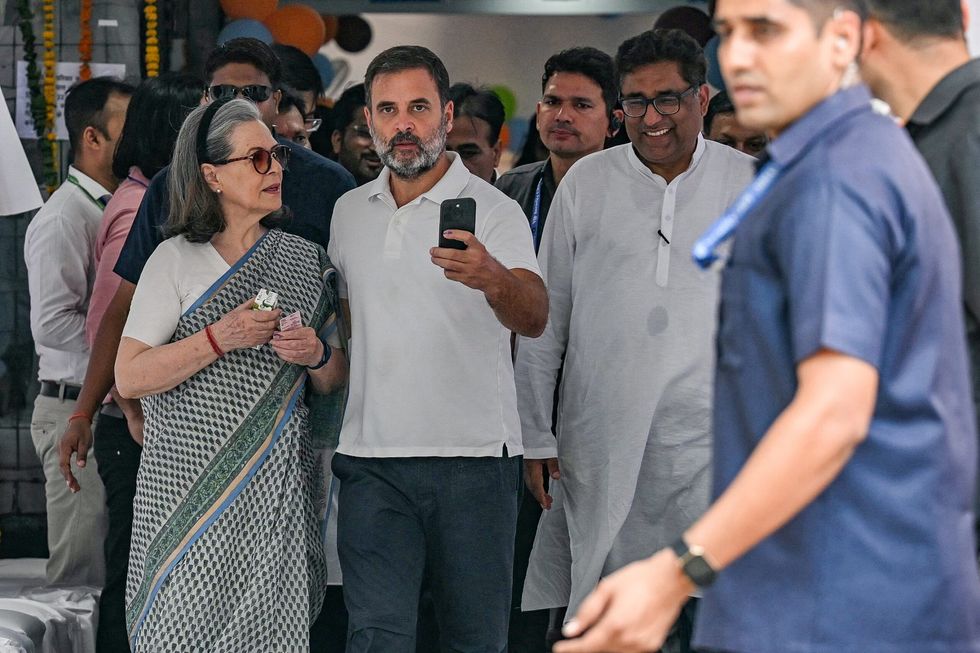
Among the six phases held so far, the fifth phase had the lowest turnout at 62.2 per cent.
In the sixth phase, polling took place on Saturday for 58 seats across eight states and Union territories.
In the 2019 general election, the turnout for the corresponding phase, which involved 59 seats in seven states, was 64.4 per cent.
Uniform Civil Code, 'One Nation, One Election' to be Implemented: Amit Shah
India's home minister Amit Shah has said that a Uniform Civil Code (UCC) for the entire country will be implemented within the next five years after extensive consultations with all stakeholders if the BJP returns to power.
In an interview with PTI, Shah said the Modi government in its next term will also implement 'One Nation, One Election,' as the time has come for elections to be held simultaneously across the country.
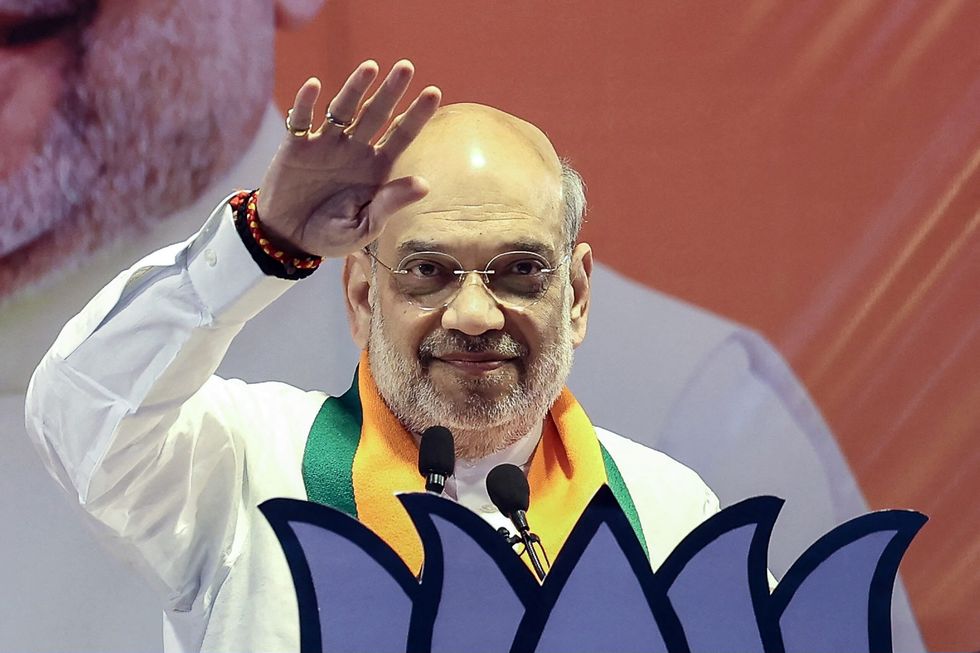
The senior BJP leader further mentioned that simultaneous elections will also reduce costs. When asked about the possibility of moving elections to winter or another time of the year, as opposed to the current period of scorching heat, Shah said, "We can think over it. If we prepone one election, it can be done. It should be done. This is also the time of students' vacation. It creates lots of problems too. Over time, the election (Lok Sabha) gradually moved to this period (during summer)."
Talking about the Uniform Civil Code, Shah said, "The UCC is a responsibility left to us, our Parliament, and the state legislatures of our country since independence by the makers of our Constitution."
EC Releases Absolute Number of Voters
The Election Commission of India (ECI) on Saturday released constituency-wise data on the number of votes cast in the first five phases of the Lok Sabha polls, stating that there is a pattern of creating false narratives and mischievous designs to vitiate the electoral process. It also asserted that any alteration in the number of votes polled is not possible.
The poll panel released the absolute number of voters a day after the Supreme Court refused to issue directions to it on an NGO's plea for uploading polling booth-wise voter turnout data on its website.
The EC said it has decided to further expand the format of the turnout data to include the absolute number of voters in every constituency. The absolute numbers are discernible constituency-wise by all citizens by applying the turnout percentage to the total number of electors, both of which are already available in the public domain, the poll panel said.
Electors are those on the electoral roll and eligible to vote, while voters are those who actually cast their votes in an election. While the EC had been issuing the turnout percentage, there were demands to make the actual number of voters in every phase public.
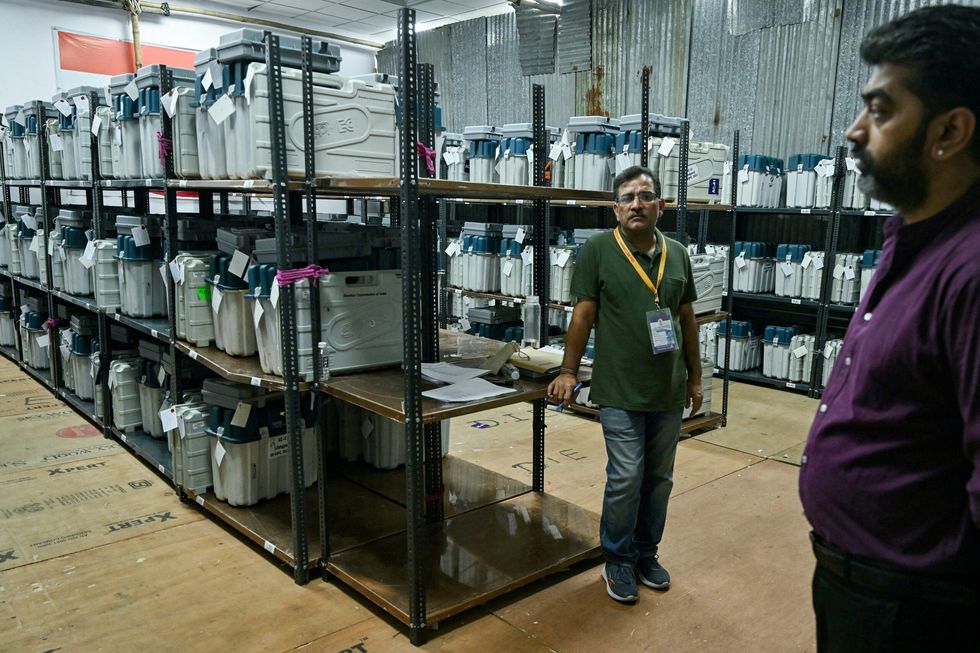
Referring to the apprehensions expressed by some opposition parties that the turnout data could be fudged, the poll panel said the process of collecting and storing the votes polled is rigorous, transparent, and participative, reported PTI.
At 62.2 Per Cent, Phase 5 Sees Lowest Voter Turnout
The voter turnout in the fifth phase of the Lok Sabha polls, held on May 20, was recorded at 62.2 per cent, the lowest so far in the ongoing elections, the Election Commission of India (ECI) announced on Thursday (May 23). Notably, women outnumbered men in this phase.
According to an EC statement, 61.48 per cent of registered male voters turned up at the polling stations, compared to 63 per cent of female electors.
In phase 5, 49 seats across six states and two Union territories went to the polls, with over 8.95 crore people eligible to vote, including 4.69 crore men, 4.26 crore women, and 5,409 third-gender individuals.
The participation of women in voting was higher than that of men in Bihar, Jharkhand, Ladakh, Odisha, and Uttar Pradesh.
Read Also- Sunak, Akshata list common interests on Instagram
In the corresponding phase of the 2019 Lok Sabha polls, the turnout was registered at 64.16 per cent, with 51 seats across seven states going to the polls.
Quote of the Week
"Bihar is the land which has given a new direction to the fight for social justice. I wish to declare on its soil that I will foil the plans of the INDIA bloc to rob SCs, STs and OBCs of their rights and divert these to Muslims. They may remain enslaved and perform 'mujra' to please their vote bank," PM Modi said during an election rally.
Election Trivia
The Indian election season has put a spotlight on individuals resembling Narendra Modi, attracting attention amid the political fervour. These "Modi look-alikes" are intriguing observers and even joining political rallies.
Muslim electric-rickshaw driver Rashid Ahmed is affectionately dubbed "Our Modi" in his Delhi neighbourhood due to his striking resemblance to the prime minister, who is vying for a third consecutive term in the general elections.
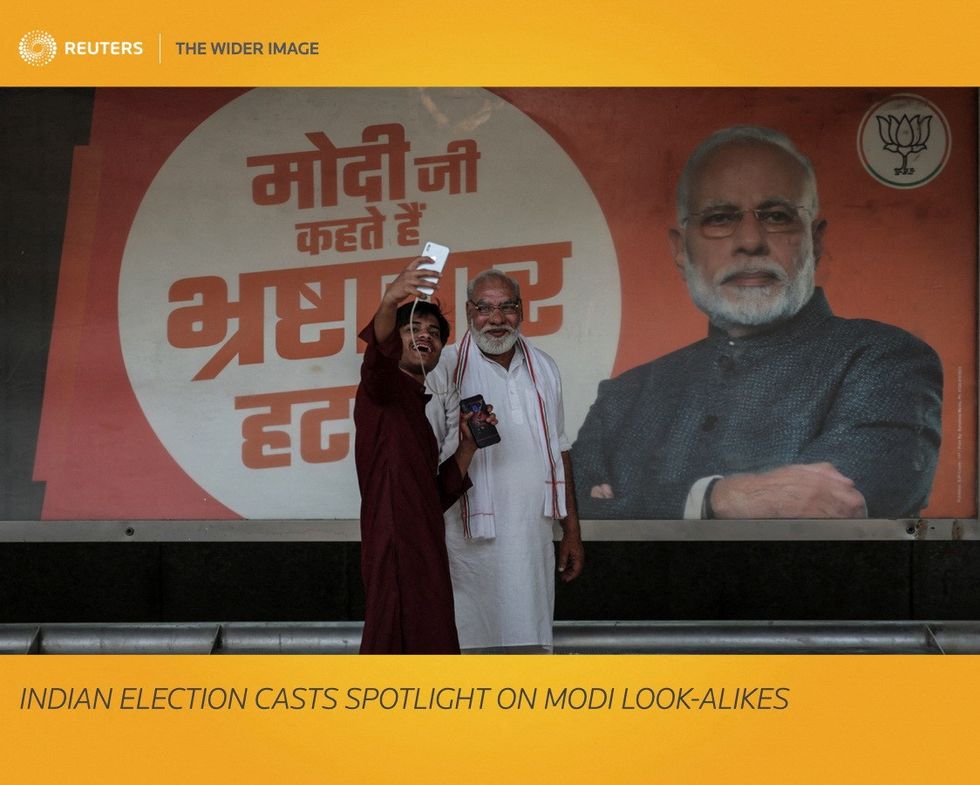
"I've looked like this for ages, but since Modi became prime minister, there's been more talk about it," Ahmed, 60, whose white hair and beard, styled like Modi's, along with similar attire, told Reuters..
Another Modi doppelgänger is Jagdish Bhatia, 68, a real estate businessman in a wealthier part of the capital, who follows a spiritual sect independent of any religion, reported Reuters,
Bhatia, who attends BJP rallies as a "social service," explains, "I admire Modi's vision and the strides he's taken for the country's development."
